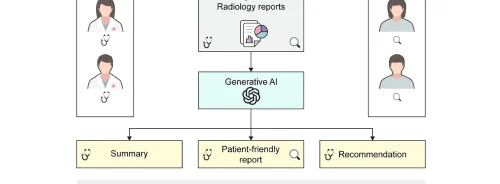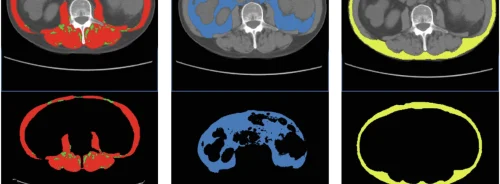Based on an international study, some older women with breast cancer could safely avoid radiotherapy, without harming their chances of survival. Researchers found that older women with early breast cancer who were given breast-conserving surgery and hormone therapy gained very modest benefit from radiotherapy.
These findings suggest that a carefully defined group of patients who are at low risk of recurrence could avoid the health risks and side effects associated with radiotherapy, such as fatigue and cardiac damage.
"While radiotherapy will remain the standard of care for most women after breast-conserving surgery, the absolute reduction in risk of recurrence from radiotherapy in low-risk older women receiving hormone treatment is very modest," said Professor Ian Kunkler, consultant in clinical oncology at the University of Edinburgh's Cancer Research Centre and chief investigator of the study. "This makes omission of radiotherapy an option for selected older patients."
At present, older women with early hormone-sensitive breast cancer are offered surgery to remove their tumour, followed by hormone treatment and radiotherapy. Few trials have assessed the benefits of radiotherapy in older women treated by breast-conserving surgery.
Prof. Kunkler and colleagues at the University of Edinburgh led an international randomised, controlled trial (PRIME 2) of 1,326 patients aged 65 or older with early-stage, hormone-receptor positive breast cancers. These patients' tumours were surgically removed and had not spread to the lymph nodes underneath the arm.
Half of the women were given radiation as well as hormone treatment and half were given hormone treatment alone. The clinical trial yielded these results:
The results of the PRIME 2 trial have been published in the journal Lancet Oncology.
The raw data were presented for the first time at the San Antonio Breast Cancer Symposium in December 2013. The study was supported by the Chief Scientist Office (Scottish Government) and the Breast Cancer Institute (Western General Hospital, Edinburgh).
Prof. Kunkler's clinical and research interests are in clinical trials of adjuvant radiotherapy, breast cancer in the elderly, image guided radiotherapy and the application of telemedicine in the delivery of breast cancer services. He is a member of the Quality Assurance group on radiation oncology of the International Atomic Energy Agency (IAEA) and is a member of the RARECARE project on rare cancers funded by the European Commission.
Source: University of Edinburgh
Image Credit: Edinburgh Cancer Research Centre
These findings suggest that a carefully defined group of patients who are at low risk of recurrence could avoid the health risks and side effects associated with radiotherapy, such as fatigue and cardiac damage.
"While radiotherapy will remain the standard of care for most women after breast-conserving surgery, the absolute reduction in risk of recurrence from radiotherapy in low-risk older women receiving hormone treatment is very modest," said Professor Ian Kunkler, consultant in clinical oncology at the University of Edinburgh's Cancer Research Centre and chief investigator of the study. "This makes omission of radiotherapy an option for selected older patients."
At present, older women with early hormone-sensitive breast cancer are offered surgery to remove their tumour, followed by hormone treatment and radiotherapy. Few trials have assessed the benefits of radiotherapy in older women treated by breast-conserving surgery.
Prof. Kunkler and colleagues at the University of Edinburgh led an international randomised, controlled trial (PRIME 2) of 1,326 patients aged 65 or older with early-stage, hormone-receptor positive breast cancers. These patients' tumours were surgically removed and had not spread to the lymph nodes underneath the arm.
Half of the women were given radiation as well as hormone treatment and half were given hormone treatment alone. The clinical trial yielded these results:
- After five years, roughly 96 per cent of both groups had survived, and most deaths were not caused by breast cancer.
- Around one per cent of those given radiation had cancer recur in the treated breast versus four percent of those who did not receive radiotherapy.
The results of the PRIME 2 trial have been published in the journal Lancet Oncology.
The raw data were presented for the first time at the San Antonio Breast Cancer Symposium in December 2013. The study was supported by the Chief Scientist Office (Scottish Government) and the Breast Cancer Institute (Western General Hospital, Edinburgh).
Prof. Kunkler's clinical and research interests are in clinical trials of adjuvant radiotherapy, breast cancer in the elderly, image guided radiotherapy and the application of telemedicine in the delivery of breast cancer services. He is a member of the Quality Assurance group on radiation oncology of the International Atomic Energy Agency (IAEA) and is a member of the RARECARE project on rare cancers funded by the European Commission.
Source: University of Edinburgh
Image Credit: Edinburgh Cancer Research Centre
References:
Kunkler IH, Williams LJ, Jack WJL, Cameron DA, Dixon JM (2015)
Breast-conserving surgery with or without irradiation in women aged 65 years or older with early breast cancer (PRIME II): a randomised controlled trial. The Lancet Oncology, 2015; DOI:
10.1016/S1470-2045(14)71221-5
Latest Articles
Radiotherapy, Surgery, breast cancer, tumour, recurrence, hormone therapy
Based on an international study, some older women with breast cancer could safely avoid radiotherapy, without harming their chances of survival. Researcher...










